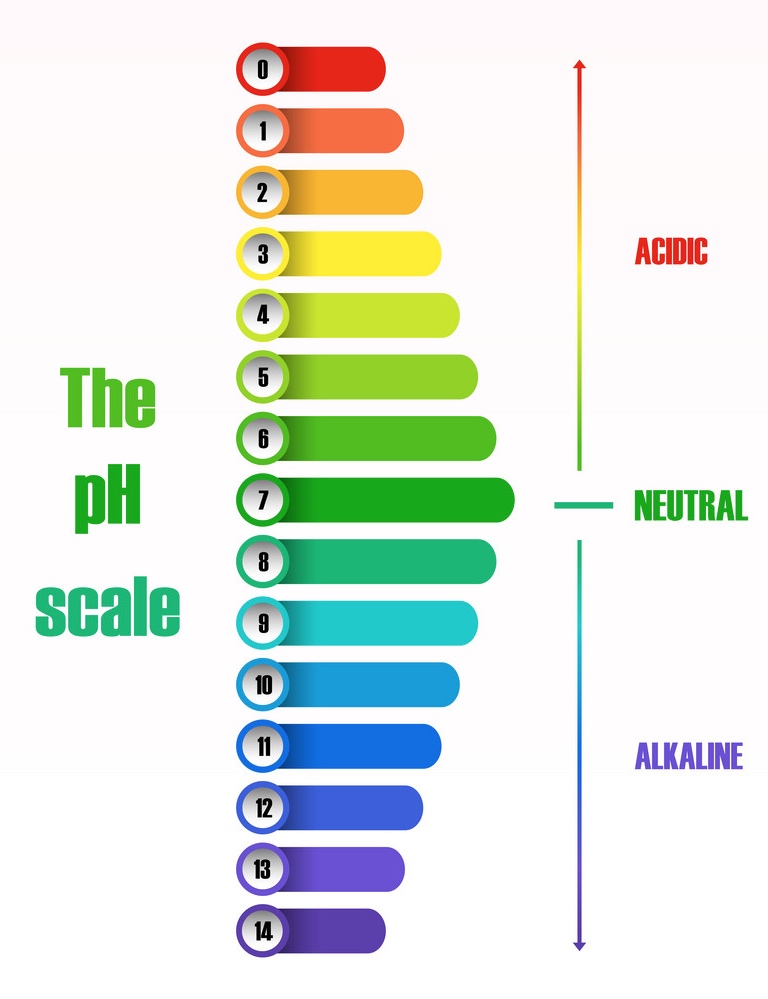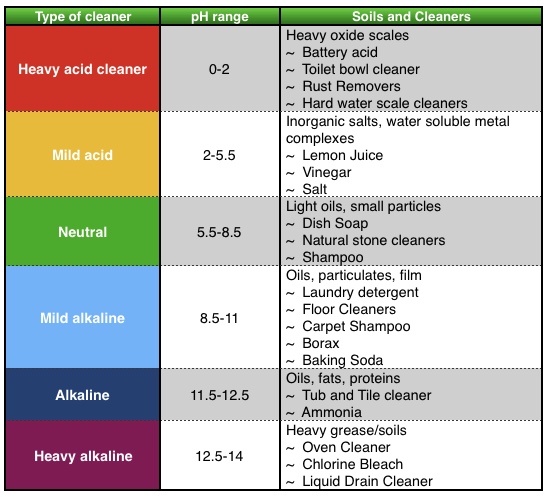Michael "Kapp" Brown | Nov 19, 2019

So in our second episode of the Science of Cleaning, have you ever wondered which cleaners in your home are good for which cleaning task? If you have a greasy spot on your counter, or floor, which type of cleaner should I use? If so, I hope to lend some insight.
First of all, all cleaning substances that are water based have a pH scale. pH (potential of hydrogen) is the measurement of acidity or alkalinity of a substance when dissolved in water. Just as degrees are used to measure precise temperature, pH gives us the precise measurement of acidity or alkalinity.
Ok, enough of the science lingo. What does mean? Simply this …. Every water based substance falls somewhere on the pH scale of 0-14 with 7 being neutral. Anything below neutral is acidic, and anything above 7 is alkaline. Why this is is important is that cleaning issues that arise will require different pH to remediate the issue. A good rule of thumb is that anything organic (food, dirt, grease, etc …) needs an alkaline cleaner, and anything mineral based (calcium, mold, rust, etc …) needs an acid cleaner. So where do the cleaning compounds in my home fall on that scale? Let’s take a look
It is also important to note that as you go up or down the pH scale, the chemicals become more corrosive, so protective gloves and adequate ventilation should be used when using these.
A couple of tips.
- Tip #1 – When using a high alkaline cleaner on floors, it is always a good idea to add an acid solution to your rinse water to remove all forms of the alkaline residual. Vinegar is a great option for this. Add maybe 1/4 cup to your final rinse water when cleaning floors or using a rental carpet cleaner. This will eliminate that “sticky” feeling on tile or vinyl flooring, and leave your carpets soft and springy.
- Tip #2 – Never mix chlorine with any cleaning compounds containing ammonia. This will produce a toxic gas that is not good for you. If you are unsure, check the label of ingredients (Some brand name dish detergents contain ammonia so be sure to look before adding chlorine).
- Tip #3 – Never use an acid cleaner on natural stone like granite or marble. It will etch the surface and remove the shine. As a result, it will need to be re-honed to bring back the natural shine. Only use neutral cleaners on stone (this does not apply to ceramic tile or man-made materials).
- Tip #4 – Finally, every household cleaner has an MSDS (Manufacturer Safety Data Sheet) sheet available. This sheet gives a list of ingredients, any safety precautions, first aid instructions, and common applications. It is always a good idea to research which products are safe for which cleaning application and keep these sheets on hand for future reference.
That’s it! Happy cleaning.
